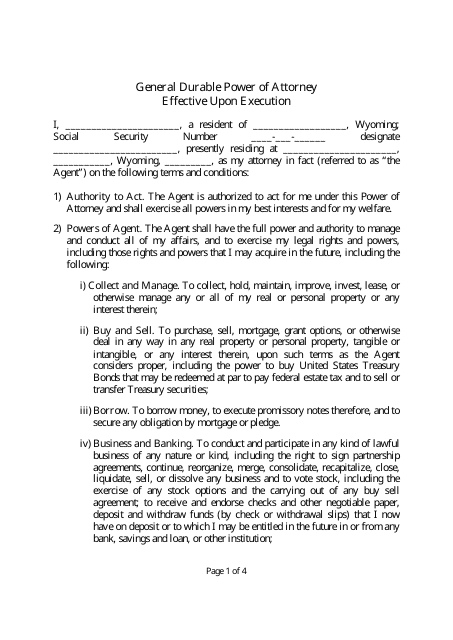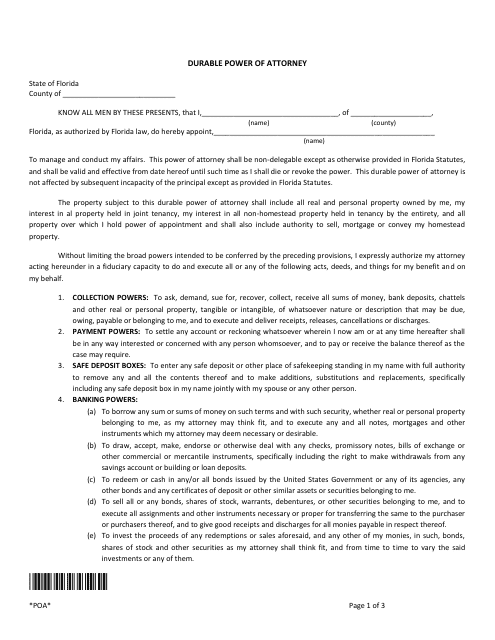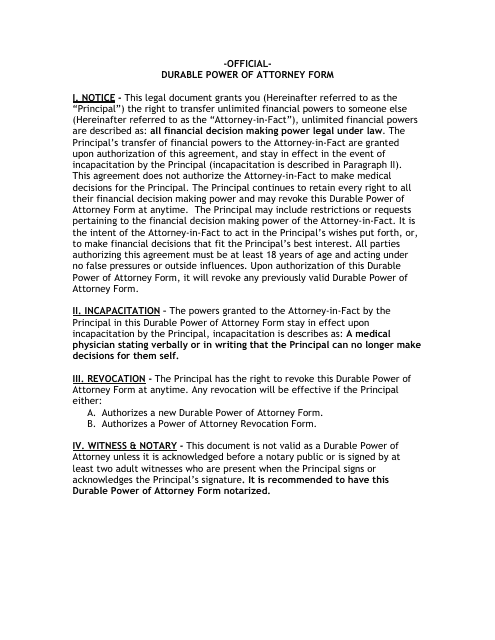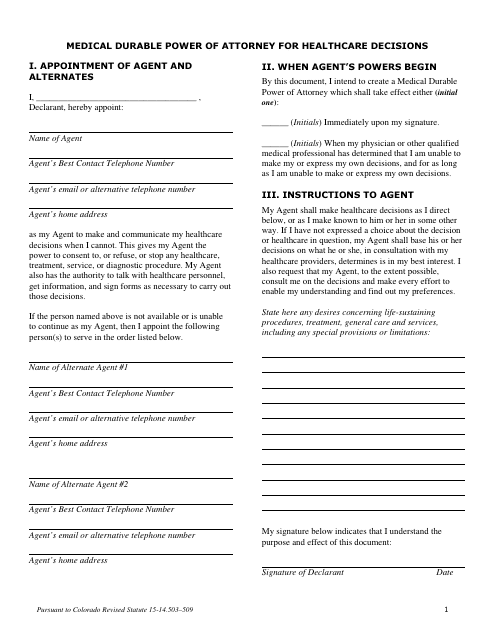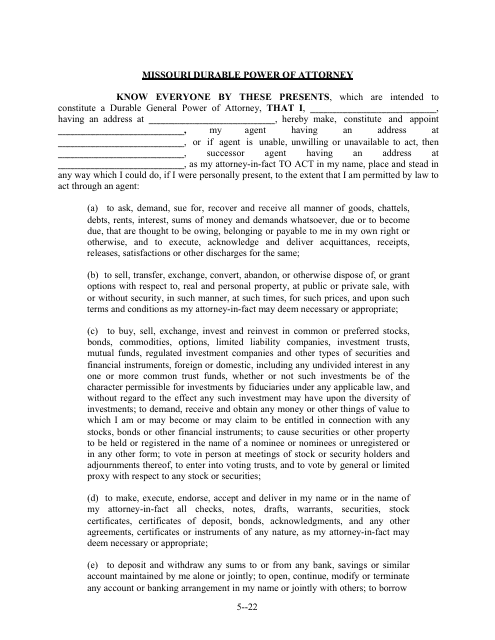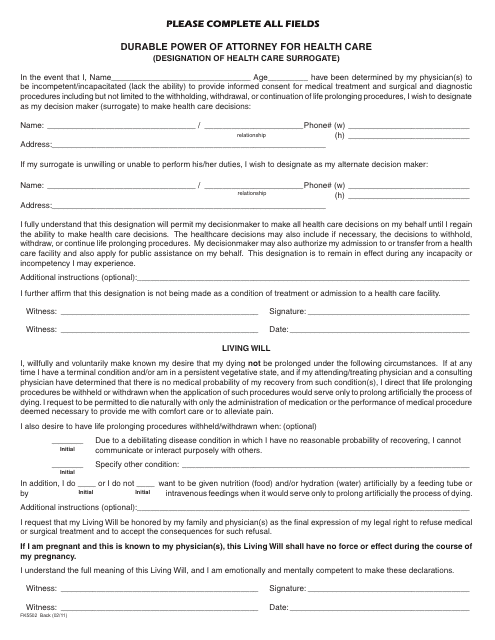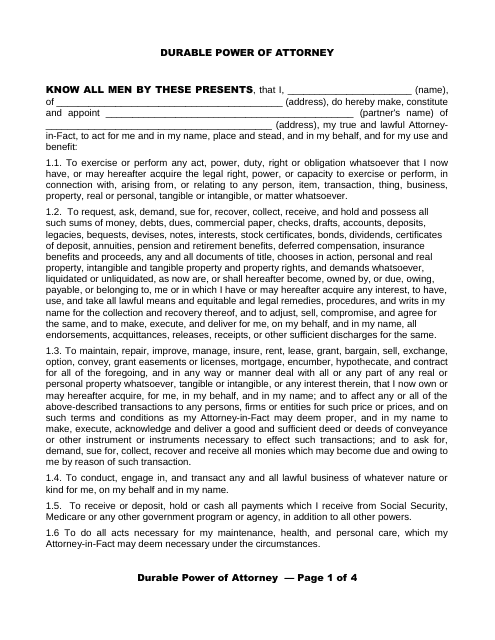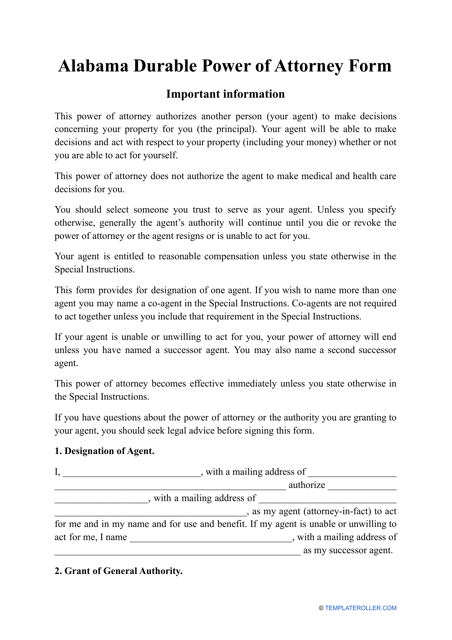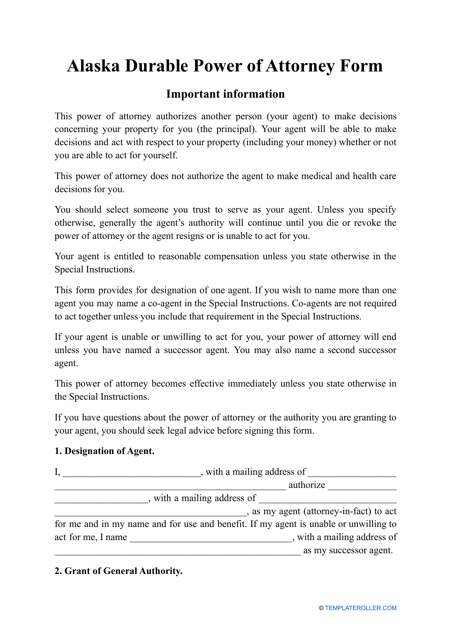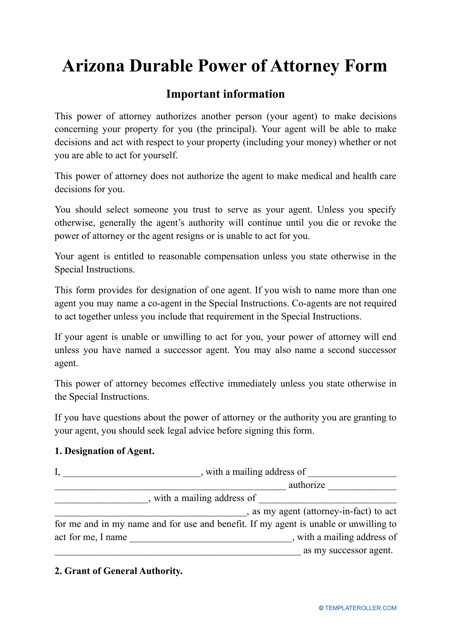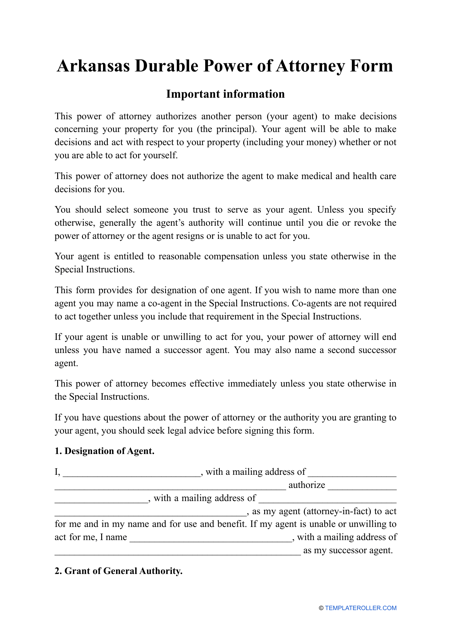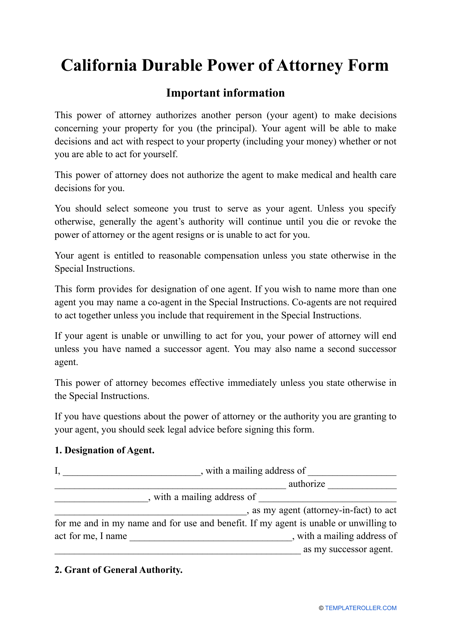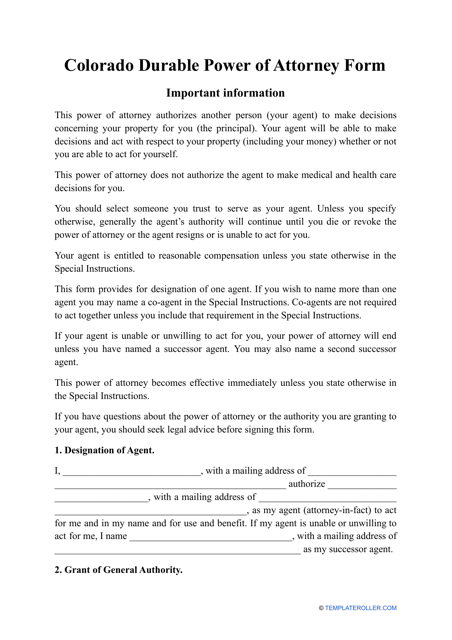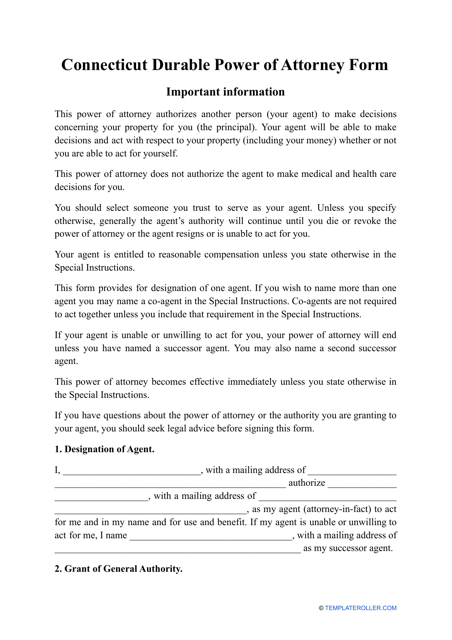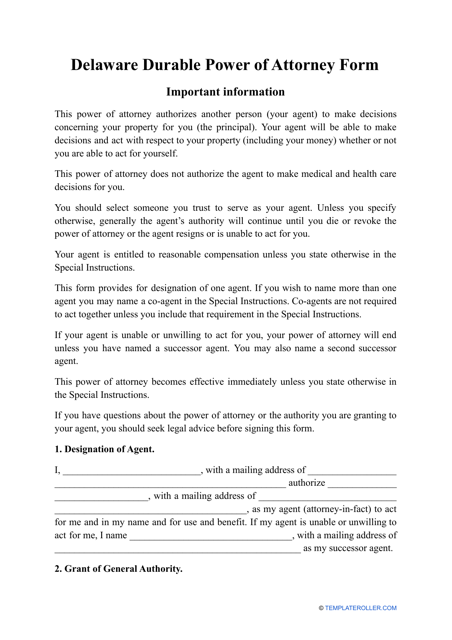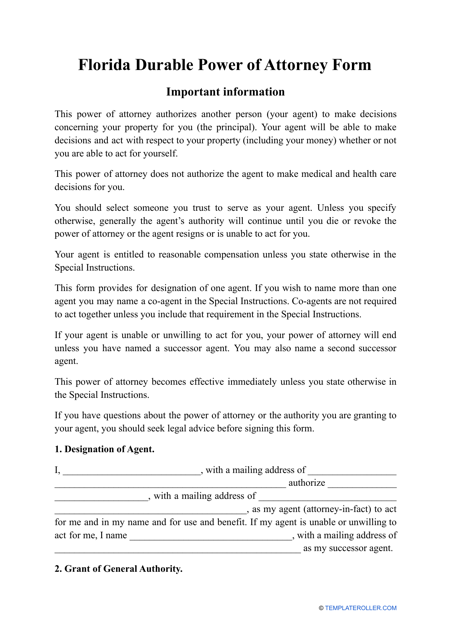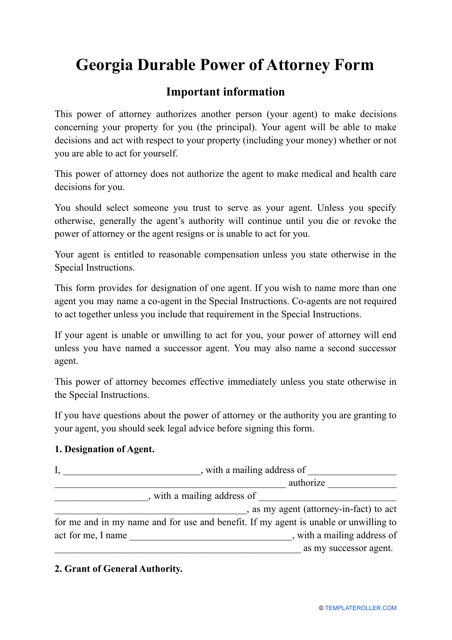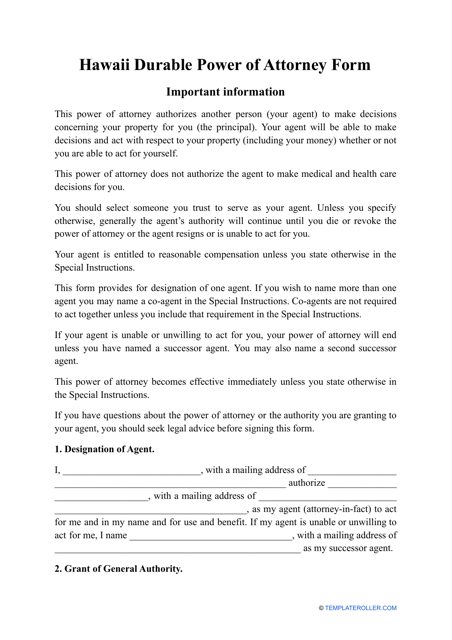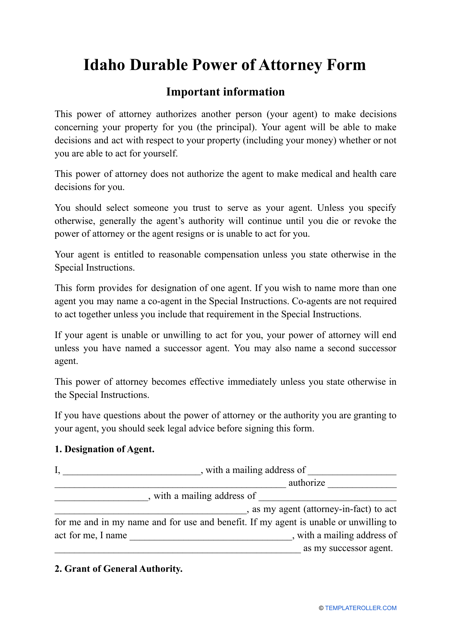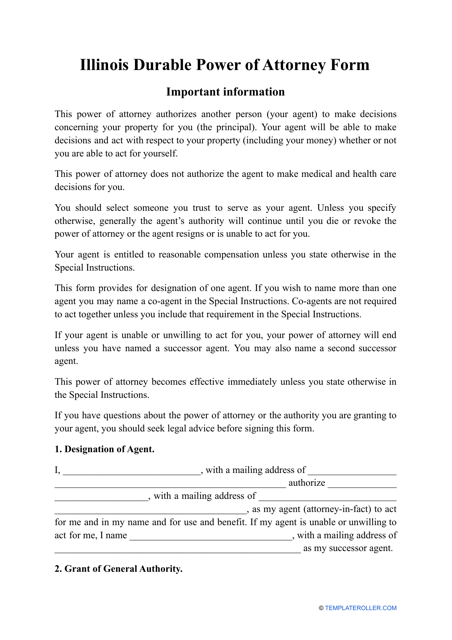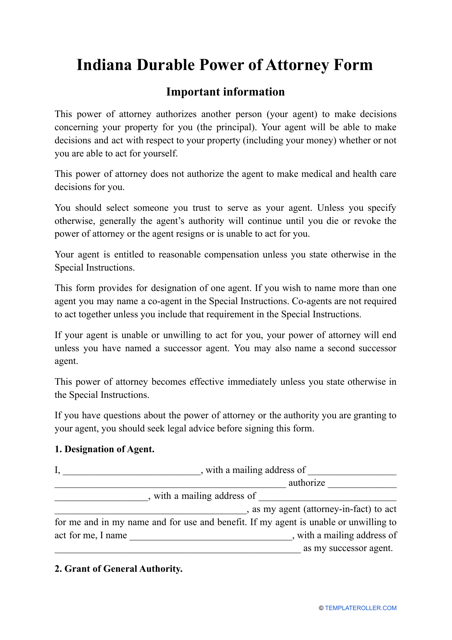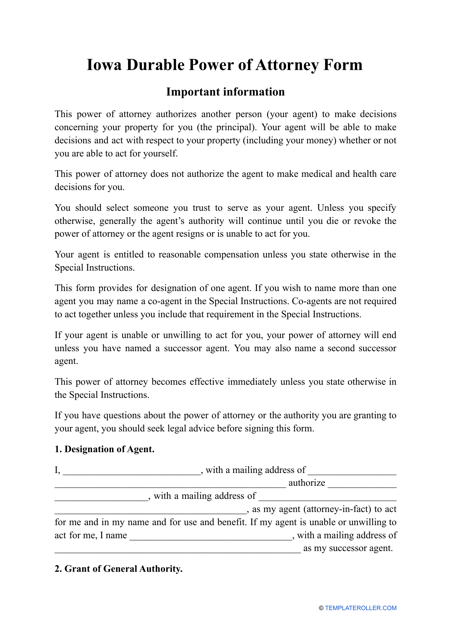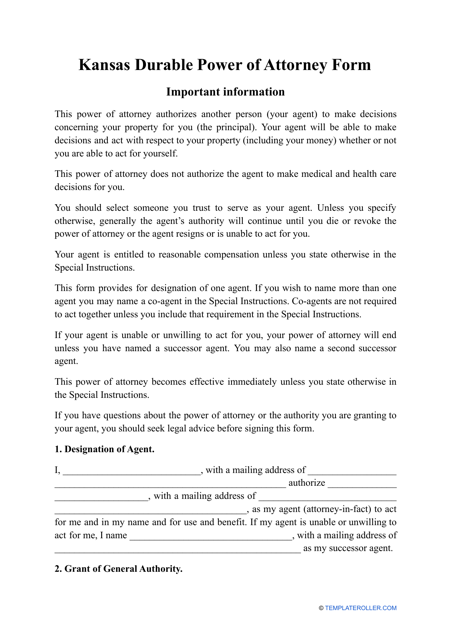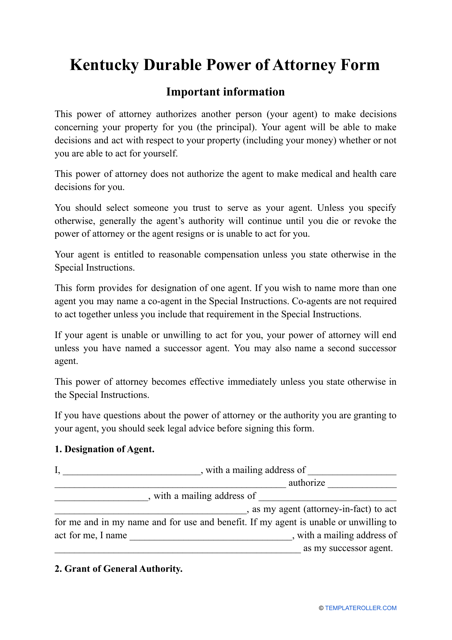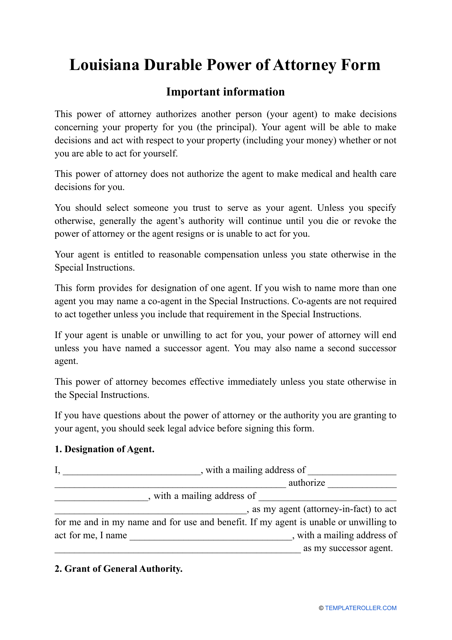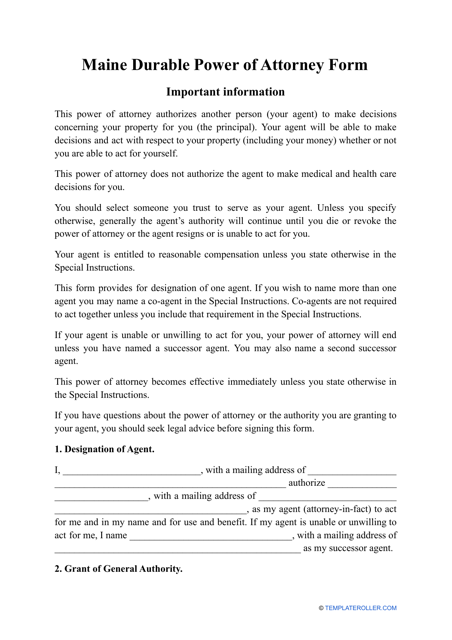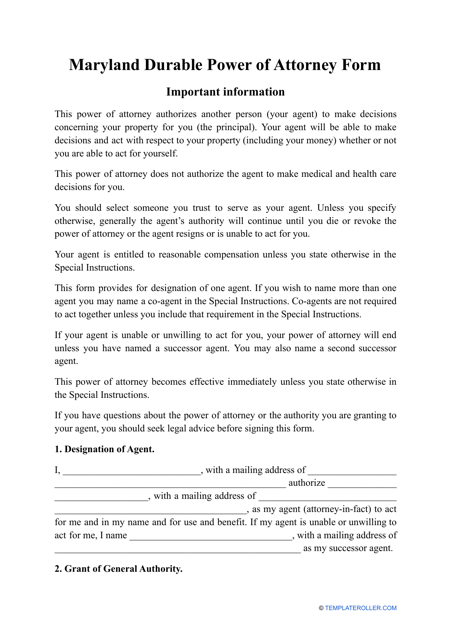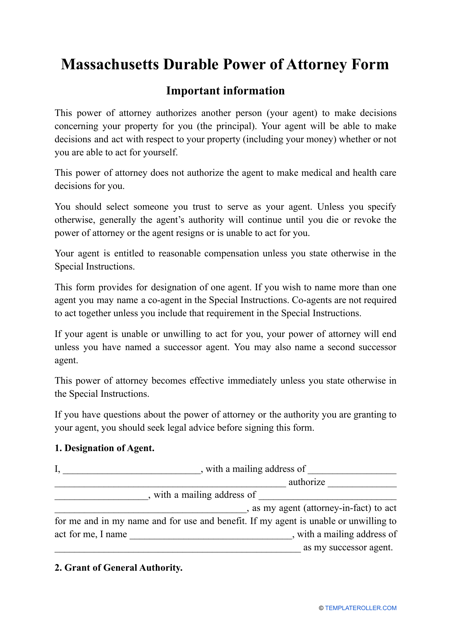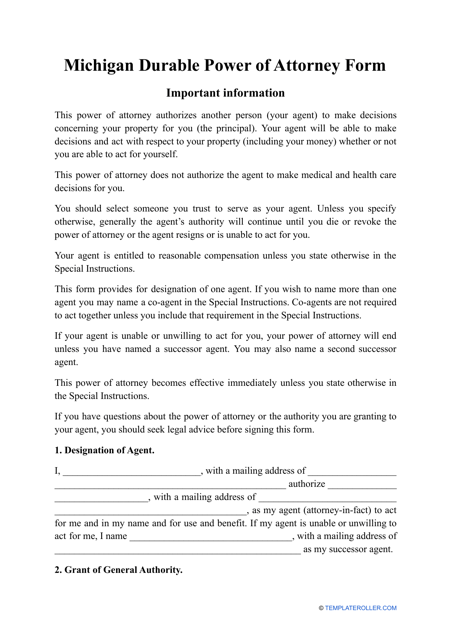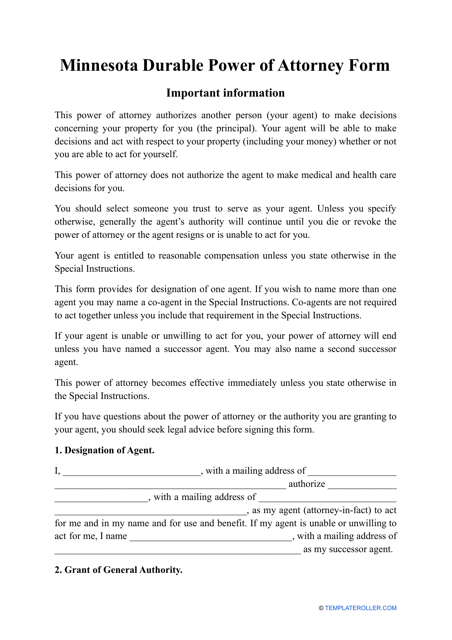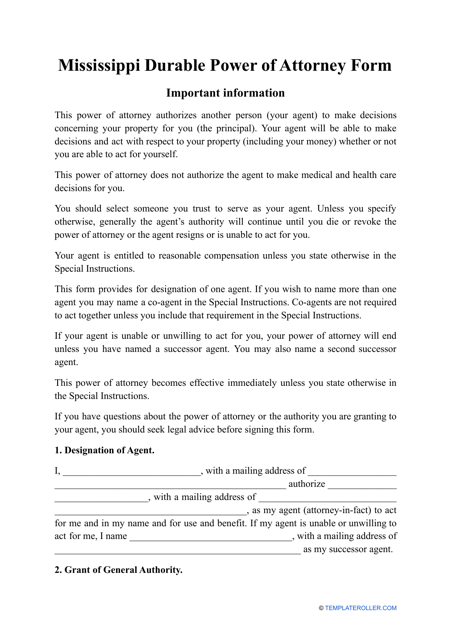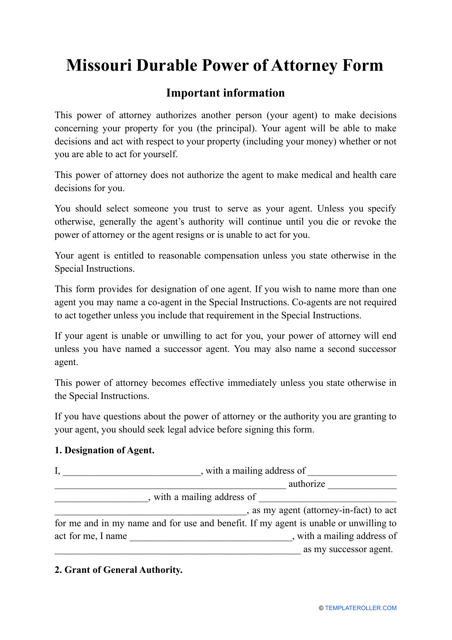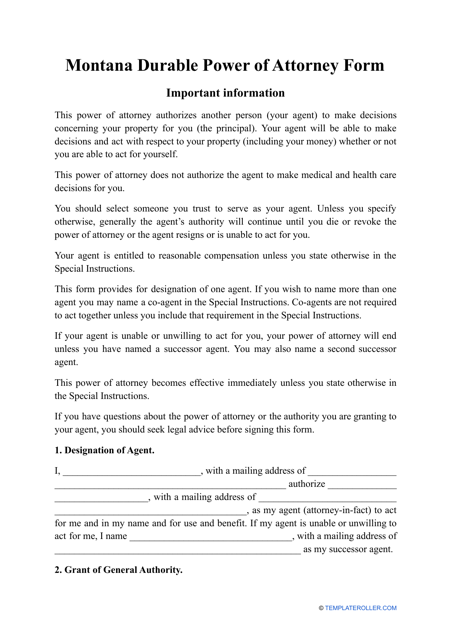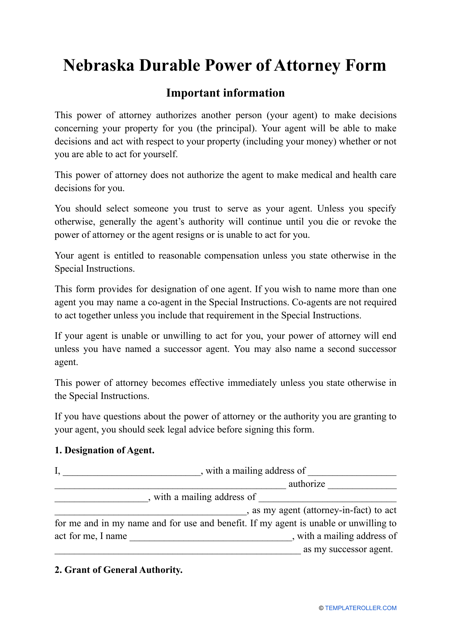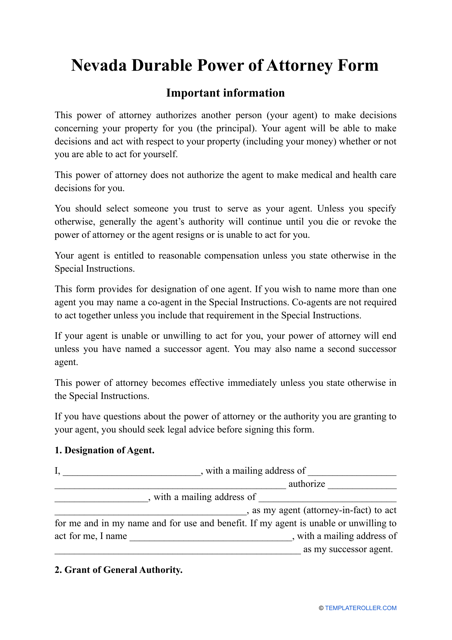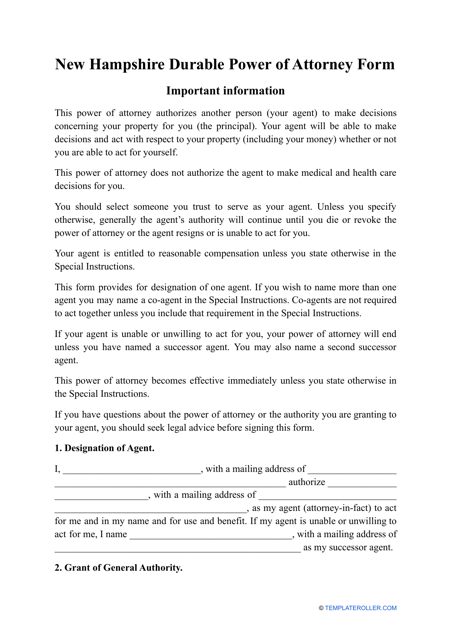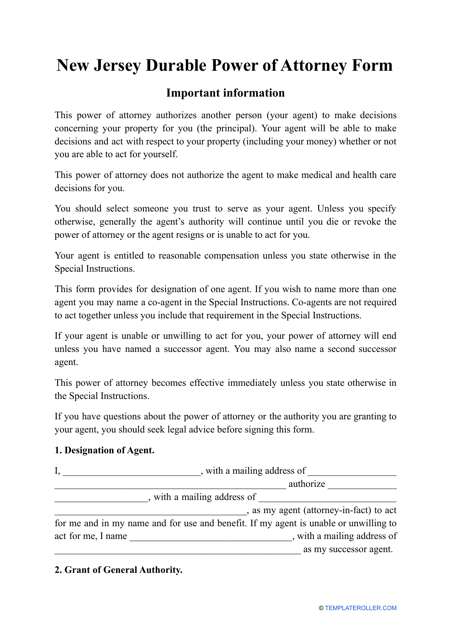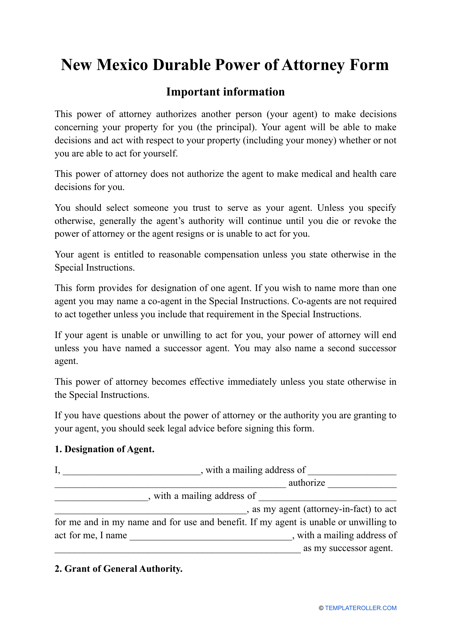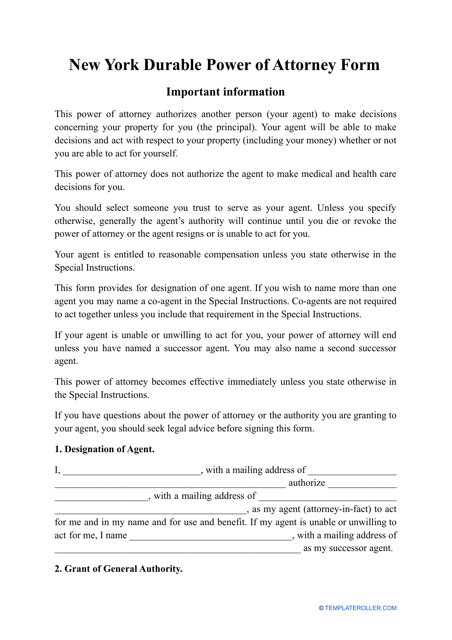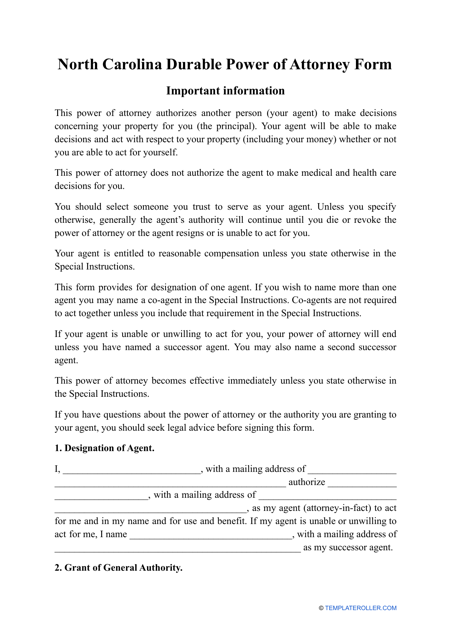Free Durable Power of Attorney Forms and Templates
What Is a Durable Power of Attorney?
A Durable Power of Attorney (DPOA) is a formal statement prepared by the person who intends to authorize another individual to handle various transactions in their name indefinitely - until the life of the principal is over or the document is revoked. If you trust your legal representative to handle legal, financial, and medical issues on your behalf irrespective of the life circumstances, you are permitted to compose a power of attorney that spells out the obligations of the agent whether they help you in your absence, during a hospital stay or trip, or just whenever there is a need to sign documentation that concerns your future.
Durable Power of Attorney Forms by State
Once the principal and their agent discuss how the latest will represent the interests of the person that issued a Durable Power of Attorney Form, they need to consider the possibility of the principal having issues and affairs that have to be handled in different states. Besides, the regulations regarding the essential elements of the agreement between the parties may vary from state to state. To make sure your authorization is legally binding, browse state-specific Durable Power of Attorney Forms below and customize the one appropriate for your location.
What Rights Does a Durable Power of Attorney Have?
While it is possible to avoid saying much in the text of the DPOA and simply confirm the other individual may act in your name in any transaction or represent you in court on any level, it will not harm either of you to be precise. Moreover, this will allow third parties to understand what level of authorization the agent has upon the first reading without the need to interpret every word. Typically, a document like this contains references to real and personal property transactions, financial operations, insurance and claims, estate maintenance, and taxes. One of the most common rights the agent gets is the permission to represent the principal making health care choices on the latter's behalf - the rights and obligations related to this matter must be comprehensive and unambiguous.
What Is the Difference Between a Power of Attorney and a Durable Power of Attorney?
A regular power of attorney signed by an individual that requires representation for a finite period of time or a particular transaction expires on the date agreed upon by the parties. As a rule, this document does not have any legal force during the incapacitation of the principal after their injury or illness. On the contrary, the word "durable" is self-explanatory - no matter what happens to the principal, without a formal revocation of the authorization, this type of power of attorney remains valid until they are deceased.
How to Get a Durable Power of Attorney?
If you decided to write a general Durable Power of Attorney Form, you may do it on your own without the help of a professional lawyer. Follow the steps below to confirm your document contains all the crucial details suitable for your situation:
- Identify the principal and the agent (you may call the latter "attorney" if you are hiring one to represent your interests) . The document should contain the names and contact details of the parties - driver's license numbers are optional but you may add them if either of the names is too common
- Certify your intention to convey the right to represent your interest to the person named in the authorization.
- Explain when the power of attorney becomes legally enforceable and how the parties may revoke it
- List the duties of the representative - the more you write in this section, the better.
- Indicate the compensation the agent gets for their services . If you are giving this authorization to a relative or friend, the amount can be small or purely symbolic.
- Sign and date the document . To add an extra level of protection to your arrangement, you may visit a notary public and put your signatures on paper in their presence after your identities are verified.
When Does a Durable Power of Attorney End?
Unlike many similar authorizations, all the provisions indicated in the Durable Power of Attorney end upon the passing of the principal. Unlike a Non-Durable Power of Attorney that is no longer enforceable if the person that signed it is incapacitated, there are no more limitations applied in this case. This is the reason why you need to consider all the advantages and disadvantages of drafting a document of this kind - for example, if the only duty of your agent is to find a tenant for your apartment and sign a lease with them, there is no necessity or obligation to compose a power of attorney that will only expire when the principal is deceased.
How to Revoke a Durable Power of Attorney?
Whether the original text of the authorization contains a clause that describes how the parties should act when either of them or they both wish to put an end to the principal-agent relationship or there is a mutual understanding this matter should be decided in accordance with relevant laws, there are three main ways to cancel the DPOA:
- Inform the legal representative about your intention to put an end to the authorization in question using a formal notice . Prepare a short letter to tell the recipient they are no longer allowed to act on your behalf and send it via traditional mail to obtain the receipt that will serve as proof of revocation.
- Meet with the representative and destroy both copies of the power of attorney together . Probably, this is the easiest way to end the arrangement; however, you both should appear and check the document is destroyed and it is impossible to salvage it.
- Compose a separate agreement that confirms your mutual resolution to cancel the power of attorney . This option is generally introduced in the authorization itself - the parties sign the document that confirms the authorization is now invalid.
Still looking for a particular form? Take a look at the related forms below:
Documents:
57
This document allows a person in Wyoming to appoint someone else to make financial and legal decisions on their behalf.
This document is a template that can be used to create a durable power of attorney in the state of Florida. It allows someone to designate another person to make financial and legal decisions on their behalf in case they become unable to do so themselves.
This type of document is used to appoint someone to make legal and financial decisions on your behalf if you become unable to do so yourself.
This document is used to appoint someone to make healthcare decisions on your behalf in Colorado if you become unable to make them yourself.
This type of document is a template for creating a durable power of attorney in Missouri. It allows an individual to appoint someone to make decisions on their behalf if they become incapacitated.
This document is used to appoint a person to make health care decisions on your behalf if you are unable to do so. It is an important part of advance care planning.
This document for granting someone the authority to make legal decisions on your behalf in Oklahoma.
This document allows an individual in Alabama to appoint someone else to make financial and legal decisions on their behalf.
This document grants someone (known as the agent) the legal authority to make decisions on behalf of the person creating the document (known as the principal) in the state of Alaska. It remains effective even if the principal becomes incapacitated.
This document gives someone the legal authority to make decisions on your behalf in Arizona, even if you become incapacitated.
This Form is used for granting someone the authority to manage your financial affairs in Arkansas when you are unable to do so yourself.
This document allows someone you trust to make financial and legal decisions on your behalf in California when you are unable to do so yourself.
This document grants someone the legal authority to make decisions on your behalf in Colorado when you are unable to do so yourself.
This Form is used for granting someone the authority to make financial and legal decisions on your behalf in the state of Connecticut.
This document allows a person in Delaware to grant someone else the power to make financial and legal decisions on their behalf.
This document grants someone the power to make legal decisions on your behalf in Florida.
This type of document, the Durable Power of Attorney Form, is used in Georgia, United States. It allows someone to appoint another person to handle their legal and financial affairs if they become incapacitated or unable to make decisions on their own.
This document allows someone to make legal decisions on your behalf in Hawaii when you are unable to do so.
This document grants someone the authority to make legal and financial decisions on your behalf in Idaho.
This form is used for creating a legal document that grants someone the authority to make financial and property decisions on your behalf in the state of Illinois.
This Form is used for granting someone the power to make financial and legal decisions on your behalf in the state of Indiana.
This document is used for granting someone else the authority to make financial and legal decisions on your behalf in the state of Iowa.
This document allows someone to make legal and financial decisions on your behalf in the state of Kansas.
This document is used for granting someone the legal authority to make decisions on your behalf in Kentucky when you are unable to do so yourself.
This Form is used for granting someone the authority to make legal and financial decisions on your behalf in the state of Louisiana. It is a legal document that remains in effect even if you become incapacitated.
This Form is used for granting someone the legal authority to make decisions on your behalf in Maine.
This document is used for granting someone the authority to make financial and legal decisions on your behalf in the state of Maryland.
This document for granting someone the authority to make financial and legal decisions on your behalf in Massachusetts.
This document is used for appointing someone to make financial and legal decisions on your behalf in Michigan.
This type of document, called a Durable Power of Attorney form, is used in the state of Minnesota. It allows an individual to appoint someone else (called an agent) to make decisions on their behalf, typically regarding financial matters, if they become unable to do so themselves.
This document allows you to appoint someone to make financial and legal decisions on your behalf in Mississippi.
This document allows a person in Missouri to appoint someone to handle their legal and financial affairs if they become incapacitated.
This document allows a person to appoint someone else to make financial and legal decisions on their behalf in the state of Montana.
This document grants someone the authority to make financial and legal decisions on your behalf in Nebraska.
This form is used for granting someone the authority to make legal and financial decisions on your behalf in the state of Nevada.
This form is used for creating a legal document that grants someone the authority to make financial and legal decisions on your behalf in the state of New Hampshire.
This document grants someone the authority to make legal and financial decisions on your behalf in New Jersey.
This Form is used for granting legal authority to an individual to act on your behalf in financial and legal matters in the state of New Mexico.
This document is used in New York to appoint someone as your agent to make financial and legal decisions on your behalf if you become incapacitated.
This type of document, called the Durable Power of Attorney Form, is used in the state of North Carolina. It allows someone to appoint another person to make important decisions on their behalf, even if they become incapacitated.

